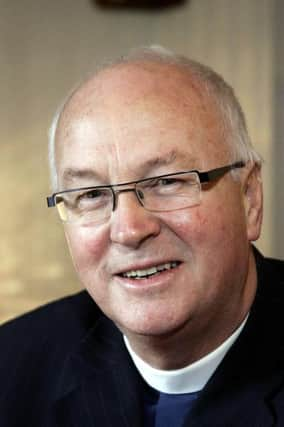Some vital punctuation for life


He is particularly upset by incorrect use of the dreaded apostrophe. Seeing a greengrocer’s notice which read, ‘Carrot’s cheap to-day’, and assuming that more than one carrot was on sale, he removed the offending apostrophe, to make the notice read ‘Carrots cheap to-day.’
Correct punctuation is key to a true understanding of what is being said or written. A BBC news item a few years ago went something like this; ‘The body of an elderly man has been found by a woman walking her dog in a shallow grave.’ What a strange place to walk a dog!
Advertisement
Hide AdAdvertisement
Hide AdAn exclamation mark is a way of registering surprise, or excitement, in phrases such as ‘What a beautiful view!’, ‘What a marvellous victory!’ or ‘What a great putt!’ It shows our joy at the glory and beauty of life.
A sentence ending with a question mark indicates a desire for knowledge or understanding. The poet Kipling had a little verse which ran: “I keep six honest serving men/they taught me all I know/ Their names are What and Why and When/ and How and Where and Who?”. Detectives seeking to get to the truth of a criminal investigation, or investigators seeking to establish the causes of a national disaster, such as the Grenfell Tower fire, will be asking those very questions.
Other punctuation marks, such as commas, semi-colons and colons indicate that more needs to be said in a sentence. In life it is also useful to realise that often more needs to be said and we should not therefore jump to instant conclusions.
Most significant of all is the full stop. That simple dot indicates that a completed message has been conveyed and that the speaker or writer has conveyed all that is essential for comprehension. In life, it is important to have full stops, times when we stop deliberating and arrive at conclusions. While it is important to have an open mind, there come times when decisions need to be made, and action taken. As G.K.Chesterton once said, “Merely having an open mind is nothing. The object of opening the mind, as of opening the mouth, is to shut it again on something solid”.
Advertisement
Hide AdAdvertisement
Hide AdThe apostle Paul arrived at a firm conclusion, something solid on which he built his life, when he said, ‘The Son of God loved me and gave himself for me’(Galatians 2;20). Have you reached that wonderful conclusion?